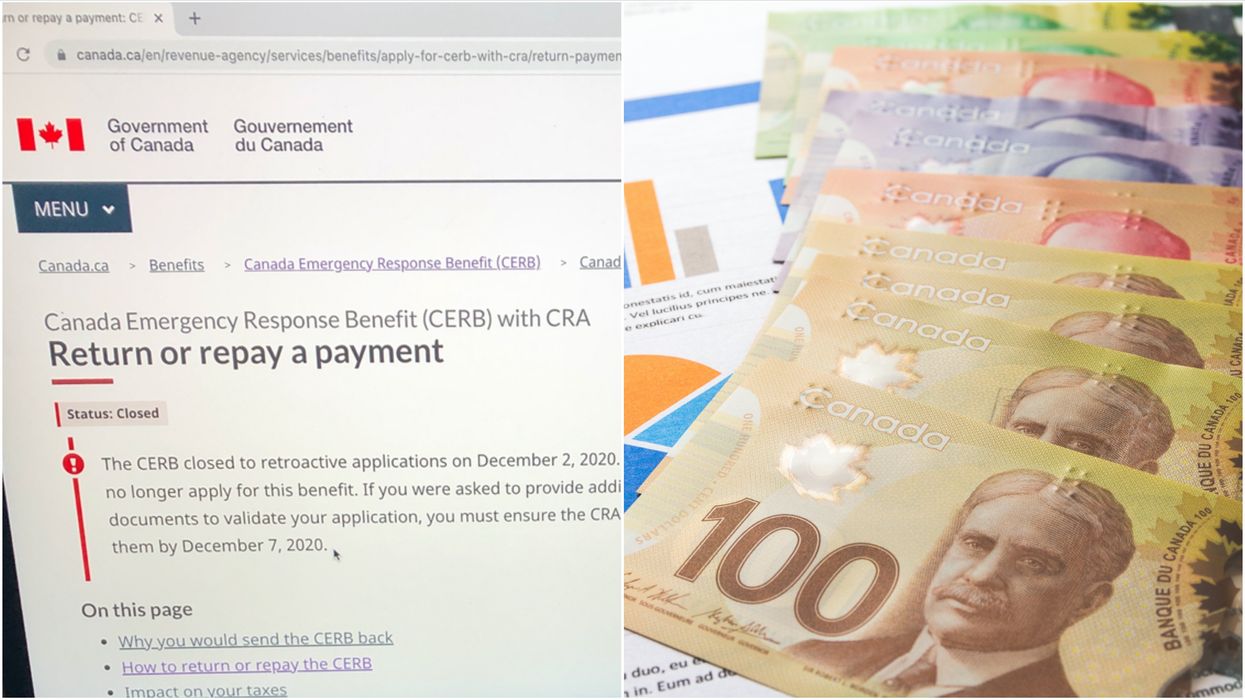Tax Experts Say There's A Way To Avoid CERB Repayments If You're Self-Employed
With 2021 just around the corner, a significant number of Canadians have recently learned that they may owe thousands of dollars in CERB repayments.
Back in November, the Canada Revenue Agency (CRA) revealed that thousands of Canadians may be asked to repay their Canada Emergency Response Benefits (CERB).
Editor's Choice: A Canadian Woman Got A Letter Saying She Needs To Pay Back Over $18K In CERB
While some of these people may have received too much money over the course of the claim period, others may have misunderstood the application and believed they were eligible when they weren’t.
For some, this may simply be a one-off repayment, but others may owe the government a serious amount of money.
While officials said that they’re prepared to offer more time and flexibility when it comes to returning the CERB, they also made it clear that they have no plans to cancel repayments.
However, some tax experts say there may be a simple solution.
Why do some people need to repay the CERB?
When the CERB was launched back in March, all applications were automatically approved to ensure that Canadians who needed support got it as soon as possible.
The government warned that eligibility would be checked at a later date and those found to be ineligible would be asked to return the money.
In November, the Canada Revenue Agency revealed that approximately 213,000 people may have to repay their benefit.
This includes those who incorrectly received double payments from both the CRA and Service Canada, as well as self-employed people who misunderstood the net/gross income aspect of the application form.
When does it need to be paid back?
Despite calls from other politicians to scrap CERB repayments altogether, the federal government has made it clear that the benefits will need to be returned.
However, they’ve committed to working with Canadians when it comes to paying back the money.
This means the agency won’t enforce repayments of a certain amount, or on a certain date.
That said, the CRA recommends repaying before December 31, 2020 to avoid the benefit impacting your taxes next year.
In addition, the government promised that those who made honest mistakes during the application process will not face any penalties, interest or additional charges.
Is there a different option?
The original CERB eligibility criteria stated that self-employed individuals were eligible for the benefit if they earned over $5,000 in 2019 or in the 12 months before applying.
In this instance, “income” referred to net income, rather than gross income.
This means some applicants qualified for the benefit per their gross income, but not per their net income, and later found out that they owe the CRA money.
However, multiple tax experts told Global News that some self-employed people may not actually have to repay.
Toronto tax lawyer David Rotfleisch explained, “There is no obligation for a taxpayer to claim expenses.”
Self-employed applicants who have filed their 2019 taxes could update their return by filing a T1-ADJ form, where they can amend their expenses so that their net income rises above the $5,000 threshold.
“By potentially paying some tax … you will be able to claim and keep the whole CERB,” Rotfleisch added.
It's an idea backed-up by Gennaro De Luca, a certified financial planner. He told Global News that this is “an easy way” to adjust your net income and be eligible for the benefit.
